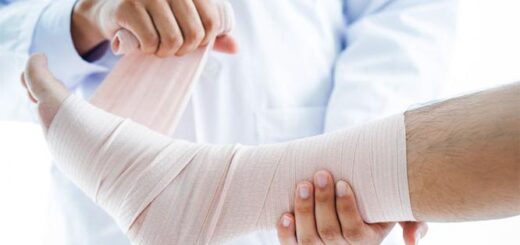Overcoming the Challenges of Recovery After a Personal Injury

Recovering from a personal injury can be a long and challenging process. Whether you were in a car accident, suffered a workplace injury, or were hurt in a slip and fall, the road to recovery can be fraught with obstacles. In this guide, we will explore the challenges faced during recovery after a personal injury and provide practical tips and advice for overcoming them. From physical challenges to emotional struggles to financial burdens, we’ll cover it all.
Challenges Faced During Recovery After a Personal Injury
The road to recovery after a personal injury is rarely smooth. In fact, it is often marked by a variety of challenges that can make the process even more difficult. Some of the most common challenges faced during recovery include physical challenges and emotional struggles.
Physical Challenges
Physical challenges are perhaps the most obvious obstacles faced during recovery after a personal injury. Depending on the severity of your injury, you may be dealing with pain, limited mobility, and a range of other physical limitations. Some common physical challenges faced during recovery include:
- Pain and discomfort
- Limited mobility
- Weakness and fatigue
- Loss of appetite and changes in eating habits
- Sleep disturbances
Emotional Challenges
In addition to physical challenges, recovery after a personal injury can also take a toll on your emotional well-being. The psychological impact of an injury can be significant and may lead to a range of emotional struggles, including:
- Depression and anxiety
- Post-traumatic stress disorder (PTSD)
- Fear and worry about the future
- Difficulty adjusting to life after the injury
Dealing with a personal injury can be a life-altering event. In addition to physical pain and emotional stress, it can also disrupt your daily routine, limit your ability to work, and impact your relationships with family and friends. As you work towards recovery, it’s important to take steps to manage the practical and logistical challenges that can arise. In this section, we’ll explore some practical tips for managing these challenges and making your recovery as smooth and stress-free as possible.
Managing Practical Challenges During Recovery
Managing practical challenges during recovery requires a combination of planning, organization, and creativity. Here are some tips for managing the practical aspects of recovery after a personal injury:
- Plan ahead: Anticipate any challenges that may arise and plan accordingly. For example, if you will need to take time off work, make arrangements with your employer ahead of time to ensure a smooth transition.
- Stay organized: Keep track of important dates, appointments, and documents related to your recovery. Use a calendar or planner to stay on top of your schedule and make note of any changes or updates.
- Ask for help: Don’t hesitate to ask for help from family, friends, or even community organizations. Many people are willing to lend a helping hand during difficult times.
- Be creative: Look for creative solutions to practical challenges. For example, if you are unable to drive, consider using public transportation or ride-sharing services to get around.
Managing Relationships During Recovery
In addition to practical challenges, recovery after a personal injury can also impact your relationships with family and friends. Here are some tips for managing relationships during recovery:
- Communicate openly: Be open and honest with your loved ones about your needs and limitations. Let them know how they can help and what they can do to support you during your recovery.
- Set boundaries: It’s important to set boundaries with family and friends to ensure you have the time and space you need to focus on your recovery. Don’t be afraid to say “no” to social events or other obligations if you need to rest or prioritize your health.
- Seek support: Consider joining a support group for people who have experienced similar injuries. These groups can provide a sense of community and connection during a difficult time.
- Focus on quality time: Use your recovery as an opportunity to spend quality time with loved ones. Focus on activities that don’t require physical exertion, such as watching movies, playing board games, or simply enjoying each other’s company.
Overcoming Physical Challenges During Recovery
Overcoming physical challenges during recovery requires a multi-faceted approach that addresses both the physical and psychological aspects of the injury. Some effective strategies for overcoming physical challenges during recovery include:
Physical Therapy
Physical therapy is an essential component of recovery after a personal injury. It involves working with a trained professional to improve mobility, strength, and flexibility. Physical therapy can help you regain range of motion, reduce pain, and improve your overall physical function.
Exercise and Nutrition
In addition to physical therapy, exercise and nutrition can also play a crucial role in overcoming physical challenges during recovery. Engaging in regular exercise can help improve strength and flexibility, while a healthy diet can support the healing process and improve overall health.
Overcoming Emotional Challenges During Recovery
In addition to physical challenges, recovery after a personal injury can also take a toll on your emotional well-being. Some effective strategies for overcoming emotional challenges during recovery include:
Counseling and Therapy
Counseling and therapy can be incredibly helpful for those struggling with emotional challenges during recovery. A trained therapist can provide a safe and supportive space for you to talk about your feelings, develop coping strategies, and work through any issues related to your injury.
Support from Family and Friends
Support from family and friends can also be invaluable during the recovery process. Having a strong support network can help you feel less alone and provide a sense of connection and belonging. Friends and family members can offer emotional support, practical help with daily tasks, and encouragement to stay motivated during your recovery.
Dealing with Financial Challenges During Recovery
In addition to physical and emotional challenges, recovery after a personal injury can also be financially stressful. Medical bills, lost income from missed work, and other expenses can quickly add up and create a significant burden. Some strategies for dealing with financial challenges during recovery include:
Understanding Your Insurance Policy
Understanding your insurance policy is essential when it comes to navigating the financial aspects of recovery after a personal injury. Make sure you know what your policy covers and what your out-of-pocket expenses will be. If you have questions or concerns about your coverage, don’t hesitate to reach out to your insurance provider.
Seeking Legal Help
In some cases, seeking legal help may be necessary to navigate the financial aspects of recovery after a personal injury. A personal injury attorney can help you understand your rights and options, negotiate with insurance companies, and ensure you receive the compensation you deserve.
Recovering from a personal injury can be a challenging and difficult process, but it’s important to remember that it is possible to overcome the obstacles you may face. By focusing on your physical and emotional well-being, seeking support from family and friends, and taking practical steps to deal with financial challenges, you can navigate the road to recovery with greater ease and success. Remember to be patient, take things one day at a time, and prioritize your health and well-being above all else. With time and effort, you can overcome the challenges of recovery after a personal injury and get back to living your life to the fullest.











